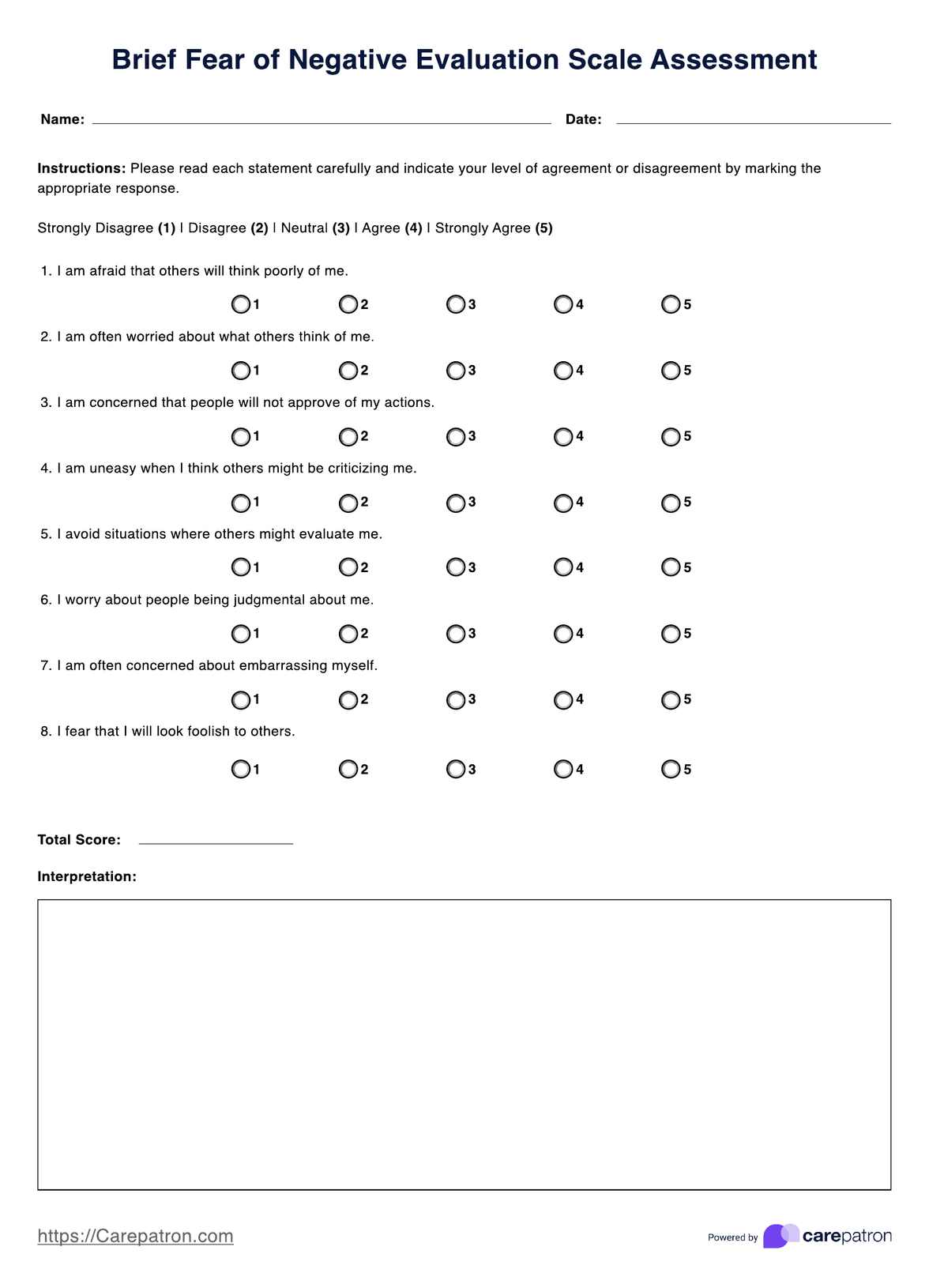Completing the Brief Fear of Negative Evaluation Scale usually takes about 5-10 minutes, consisting of concise statements that individuals rate based on their feelings.

Brief Fear of Negative Evaluation Scale
Gain insights into your fear of negative evaluation with the Brief Fear of Negative Evaluation Scale. Learn how to manage and overcome it effectively.
Use Template
Brief Fear of Negative Evaluation Scale Template
Commonly asked questions
The total score on the Brief Fear of Negative Evaluation Scale indicates the level of fear of negative evaluation. Higher scores suggest a higher degree of fear, while lower scores indicate less fear.
The Brief Fear of Negative Evaluation Scale is used in various contexts, including therapy, research, education, and personal growth, to assess fear of negative evaluation and its impact.
EHR and practice management software
Get started for free
*No credit card required
Free
$0/usd
Unlimited clients
Telehealth
1GB of storage
Client portal text
Automated billing and online payments











